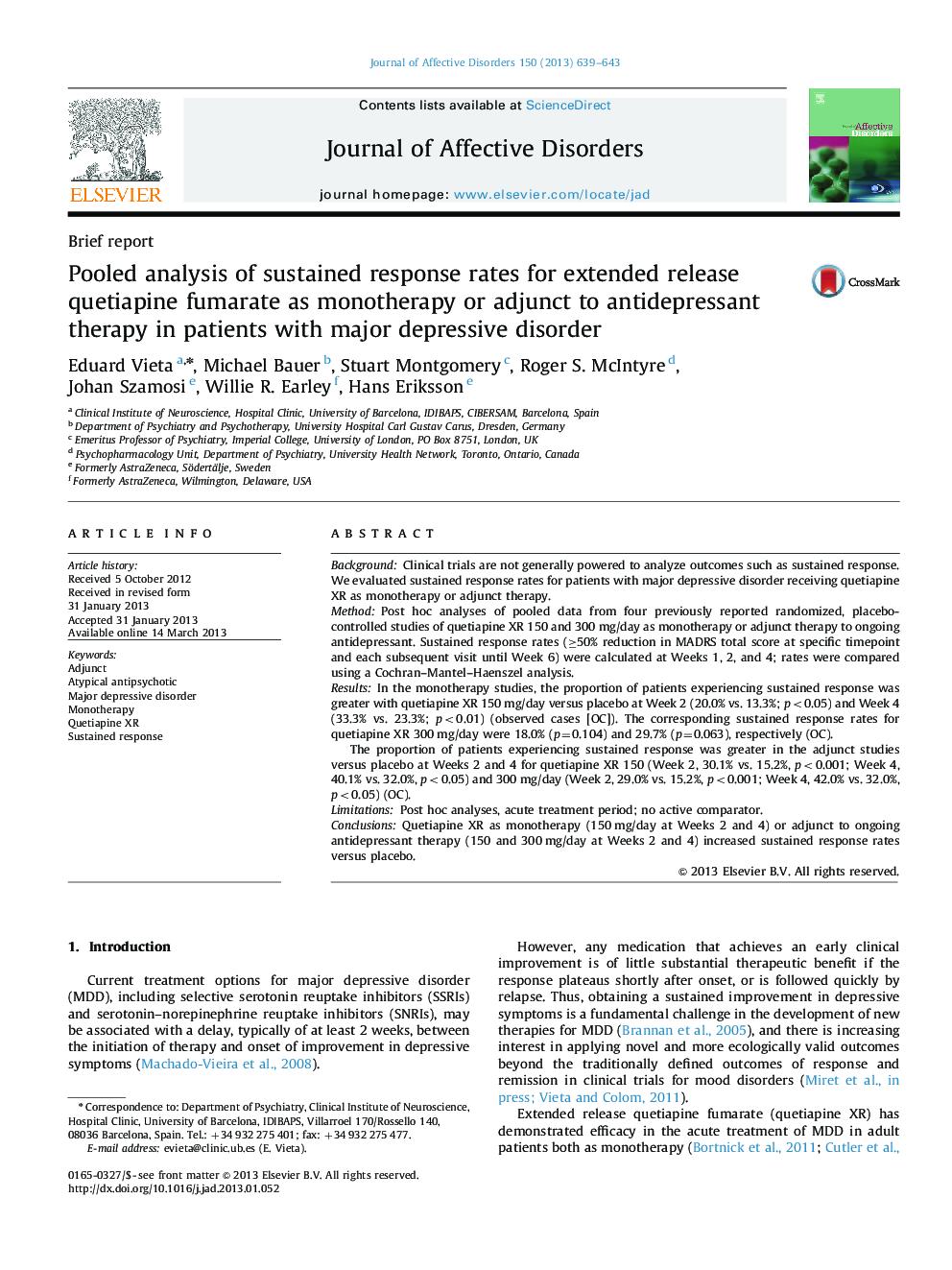| Article ID | Journal | Published Year | Pages | File Type |
|---|---|---|---|---|
| 6234364 | Journal of Affective Disorders | 2013 | 5 Pages |
BackgroundClinical trials are not generally powered to analyze outcomes such as sustained response. We evaluated sustained response rates for patients with major depressive disorder receiving quetiapine XR as monotherapy or adjunct therapy.MethodPost hoc analyses of pooled data from four previously reported randomized, placebo-controlled studies of quetiapine XR 150 and 300 mg/day as monotherapy or adjunct therapy to ongoing antidepressant. Sustained response rates (â¥50% reduction in MADRS total score at specific timepoint and each subsequent visit until Week 6) were calculated at Weeks 1, 2, and 4; rates were compared using a Cochran-Mantel-Haenszel analysis.ResultsIn the monotherapy studies, the proportion of patients experiencing sustained response was greater with quetiapine XR 150 mg/day versus placebo at Week 2 (20.0% vs. 13.3%; p<0.05) and Week 4 (33.3% vs. 23.3%; p<0.01) (observed cases [OC]). The corresponding sustained response rates for quetiapine XR 300 mg/day were 18.0% (p=0.104) and 29.7% (p=0.063), respectively (OC).The proportion of patients experiencing sustained response was greater in the adjunct studies versus placebo at Weeks 2 and 4 for quetiapine XR 150 (Week 2, 30.1% vs. 15.2%, p<0.001; Week 4, 40.1% vs. 32.0%, p<0.05) and 300 mg/day (Week 2, 29.0% vs. 15.2%, p<0.001; Week 4, 42.0% vs. 32.0%, p<0.05) (OC).LimitationsPost hoc analyses, acute treatment period; no active comparator.ConclusionsQuetiapine XR as monotherapy (150 mg/day at Weeks 2 and 4) or adjunct to ongoing antidepressant therapy (150 and 300 mg/day at Weeks 2 and 4) increased sustained response rates versus placebo.
